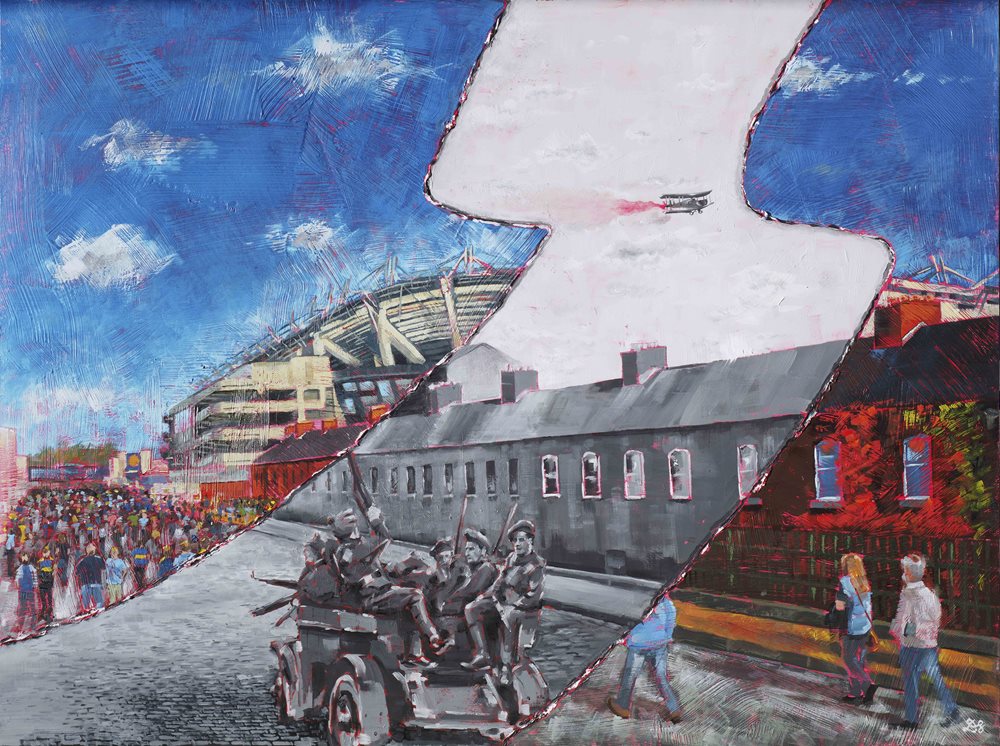- Back to Bloody Sunday 100
Remember & Honour:
Remembering Bloody Sunday Exhibition
The focal point of our heartfelt anniversary programme is of course our new
Remembering Bloody Sunday exhibition. The exhibition provides a factual account of the tragic day through artefacts, documents and photographs.
The exhibition honours the victims, tells their stories, and provides visitors with a place to reflect and learn more about the events surrounding the darkest day in GAA history.
Audio recordings of extracts from eye-witness accounts of the events in Croke Park on 21
st November 1920, featuring the voices of the GAA Museum tour guides, play in the background as visitors move through the exhibition space.
Artefacts and documents on display includes letters sent to family members in the aftermath of the shootings, medals from players who played for both Tipperary and Dublin on the day, portraits of those who lost their lives, and personal items belonging to the victims and those in attendance.
Discover more about the artefacts on display
The painting ‘Transilience’, a special commission by the GAA Museum to mark the 100th anniversary of Bloody Sunday, is also on view. ‘Transilience’, which means an abrupt change or leap from one state to another, was created by artist David Sweeney, who is a former Dublin GAA senior hurling captain and the GAA’s eLearning Manager at Croke Park.

Transilience, a specially commissioned painting by David McSweeney
Whatever part of our overall programme interests you the most, we invite and encourage you to spend time here, exploring the stories of the day. You’ll discover more about the victims themselves, as well as the impact that the events have had on the course of Irish history. We particularly encourage school groups to take their time here during their visit, and perhaps consider using it as a starting point for further research and study. This would be a wonderful way to further honour the victims of Bloody Sunday.
The Bloody Sunday exhibition was supported by the Department of Media, Tourism, Arts, Culture, Sport & the Gaeltacht, which provided funding under the Regional Museums Grant Scheme. The GAA Museum would like to thank the families of the victims, players and spectators who took the time to share their stories and kindly give precious items to the museum on loan for display so that we can all learn more about the tragic events of that day.”
There is also a cymbal from the band that played on the day, which is on loan from the Brother Allen Collection in the Military Archives, as well as a burial register from Glasnevin Cemetery Museum.
Access to the GAA Museum and the new ‘Remembering Bloody Sunday’ exhibition are complementary after your Croke Park Stadium Tour or Skyline Tour. Tickets for these tours can be purchased
here.